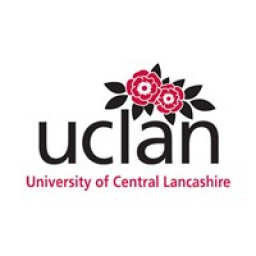As businesses
around the North West return to a new working environment, Dr Adrian Wright from
the University of Central Lancashire’s (UCLan) Institute of Research into
Organisations, Work and Employment (iROWE) explains how companies can benefit
from reimagining the workplace to creating a level playing field for all
employees.
Since the lockdown restrictions first came into
force we have seen huge changes to the way we work and live. There is no doubt
that challenging times remain ahead with enhanced measures taking place across
country with more restrictive measures across the north.
The new restrictions are likely to have a
devastating impact on sectors such as hospitality, leisure, retail and the
cultural sector and impact significantly for businesses in their supply chains.
For workers already experiencing workplace inequalities prior to the crisis, enhanced
restrictions will have a serious impact on those already experiencing workplace
inequalities including challenges to jobs, income and mental health.
The pandemic continues to expose existing
inequalities
The coronavirus pandemic has exposed the
inequalities that exist in our workplaces. While the media and political focus
has centred on furlough, government support and redundancies, those 1.3 million
people who were unemployed before the lockdown or the millions in underemployment
have gone under the radar.
To exacerbate the impact, low earners, many of
which are women, faced the double whammy of being exposed to economic and
health risks during the crisis, as they are likely to work in ‘risky’ sectors
or sectors that are likely to be closed or restricted as new measures come into
place.
Despite the chancellors new localised furlough
scheme, workers of businesses forced to close will receive 67 per cent of pay,
in comparison to the 80 per cent during the national lockdown earlier this
year. For low earners, many of which have already been impacted the most by the
crisis, this could lead to hardship for many low earners, increased exposure to
redundancies, not to mention the impact on mental health on workers, resulting
in regions in the north ‘levelled down’ rather than up.
As existing workplace inequalities remain and may
be enhanced as the winter takes hold, we all must share a renewed commitment to
‘levelling up’ and addressing the inequalities that the pandemic has exposed.
What can businesses do to support workers and
recovery quicker?
As we emerge out of the crisis, there is an
opportunity to reimagine the workplace to enable us to be more productive and
create a fairer work environment. Good employment relations should be built
upon effective policies for managing people and equitable practices around
recruitment and progression, in addition to fair pay and secure and productive
work that supports the voice and health and wellbeing of employees can raise
the productivity of the workforce, enable individuals to reach their potential
while allowing businesses to reap the rewards of engaged, motivated employees.
Paying attention to diversity, inclusion and fair
recruitment and retention policies can also assist businesses to enhance
productivity and performance. Besides the moral case for more equitable
workplaces, the business case is also clear, companies with higher diversity
display higher performance and lower turnover of staff. Recent research
undertaken by the Institute for Research into Organisations, Work and
Employment at UCLan is examining how best to support those wishing to return to
the workplace after taking time out due to caring responsibilities. Findings
have shown that more flexible working practices and approaches to the make-up
of jobs, plus valuing a different make up of a traditional workforce can ensure
businesses are better placed for future challenges.
Reducing the long-term impact of redundancy and
high unemployment will enable companies to grow quicker out of the crisis,
leave organisations better placed to harness the skills needed to scale up
while supporting the mental health and job security of workers. Post Brexit
skills gaps are a real challenge for UK businesses so retraining and upskilling
workers can help not to suffer from the productivity crisis that emerged from
the last economic shock. Similarly, when businesses are running under capacity,
approaches such as work sharing or short time work where all employees are on
shorter hours or a shorter working week, in line with increased government
support, can offer a proactive and longer term alternative to redundancies as
business can keep the workforce engaged to their jobs, support mental health
and wellbeing and gender inequalities, leaving businesses better placed to
scale up in the future.
It is undoubted that the pandemic has had a
dramatic and major impact on businesses, but we have an opportunity to be
better prepared for the challenges of the future.
Dr Adrian Wright is Deputy Head of School for the
Lancashire School of Business and Enterprise, Director of the Institute of
Research into Organisations, Work and Employment and a Work and Organisations
lead in the Lancashire Centre for Business, Management and Enterprise. He regularly
researches and writes about issues relating to work and employment.
About the Institute for Research into
Organisations, Work and Employment (iROWE)
The Institute for Research into Organisations,
Work and Employment (iROWE) aims to engage with stakeholders to help build a
fair and equitable future of work. The Institute conducts and disseminates high
quality research and engages with key organisations such as the TUC, ISBE,
CIPD, ACAS and local Government to inform the development of effective
workplace practice and employment policy.
 Consilium Wealth Management Ltd
Consilium Wealth Management Ltd










